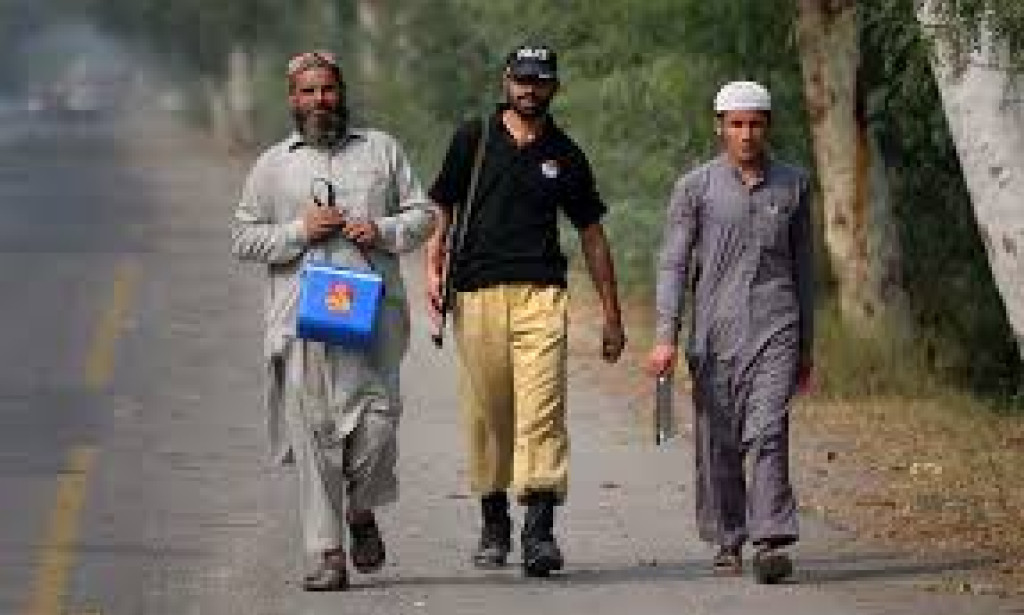Tragic Attack on Polio Vaccination Team in Northwestern Pakistan
In a distressing incident underscoring the persistent challenges faced by public health initiatives in Pakistan, a police officer assigned to protect polio vaccination workers was fatally shot by unidentified gunmen in the Bajur district of Khyber Pakhtunkhwa province. This attack, occurring just days after the commencement of a nationwide polio immunization campaign, highlights the ongoing threats to efforts aimed at eradicating the disease.

The Incident
The assault took place in the rugged terrain of Bajur, a region that has historically been a stronghold for militant groups, including the Pakistani Taliban. The assailants ambushed the police officer as he was escorting a team of health workers administering polio vaccines to children. Despite the critical importance of these vaccination drives, they have frequently been marred by violence, with health workers and their security details often targeted.

Historical Context
Since the 1990s, over 200 polio workers and their security personnel have been killed in Pakistan. Militant groups propagate unfounded rumors that polio vaccination campaigns are Western conspiracies aimed at sterilizing Muslim children, leading to widespread mistrust and resistance among certain communities. This misinformation has severely impeded efforts to eliminate the disease, making Pakistan one of the last two countries, alongside Afghanistan, where polio remains endemic.

Recent Developments
In 2024, Pakistan reported 74 polio cases, a significant increase compared to previous years, raising concerns among global health organizations. The current year, 2025, has seen two reported cases thus far. The resurgence of polio cases is attributed to several factors, including vaccine hesitancy fueled by misinformation, logistical challenges in reaching remote areas, and the deteriorating security situation that hampers vaccination efforts.

Government Response
The Pakistani government has condemned the attack and reiterated its commitment to continuing the polio eradication campaign. Authorities have launched an investigation to apprehend the perpetrators and have vowed to enhance security measures for health workers. Despite these assurances, the recurring violence poses a significant deterrent to both existing and potential health workers, exacerbating the challenges faced in immunization efforts.

Broader Implications
The persistent attacks on polio vaccination teams not only endanger lives but also jeopardize public health achievements. Interruptions in vaccination campaigns can lead to a resurgence of polio cases, undermining decades of progress. Moreover, the targeting of health workers instills fear within communities, deterring participation in not only polio immunization but other essential health services as well.

Conclusion
The tragic killing of the police officer in Bajur is a stark reminder of the formidable obstacles confronting public health initiatives in Pakistan. Addressing the root causes of misinformation, enhancing community engagement, and ensuring the safety of health workers are imperative steps toward the successful eradication of polio. The international community, alongside Pakistani authorities, must collaborate to create an environment where health interventions are conducted safely and effectively, free from the shadow of violence and fear.
In a distressing incident underscoring the persistent challenges faced by public health initiatives in Pakistan, a police officer assigned to protect polio vaccination workers was fatally shot by unidentified gunmen in the Bajur district of Khyber Pakhtunkhwa province.



You must be logged in to post a comment.